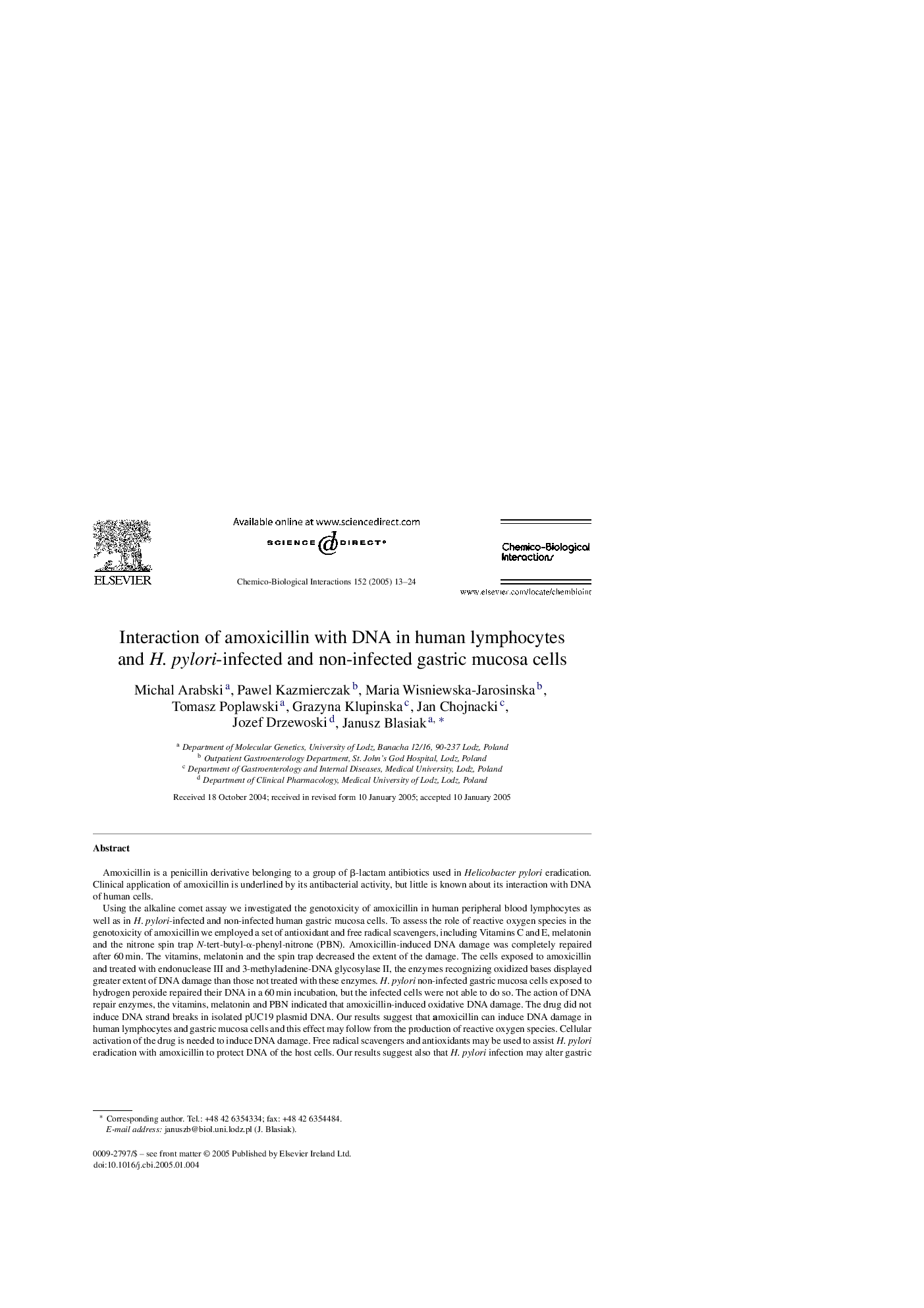| کد مقاله | کد نشریه | سال انتشار | مقاله انگلیسی | نسخه تمام متن |
|---|---|---|---|---|
| 9029701 | 1130300 | 2005 | 12 صفحه PDF | دانلود رایگان |
عنوان انگلیسی مقاله ISI
Interaction of amoxicillin with DNA in human lymphocytes and H. pylori-infected and non-infected gastric mucosa cells
دانلود مقاله + سفارش ترجمه
دانلود مقاله ISI انگلیسی
رایگان برای ایرانیان
کلمات کلیدی
موضوعات مرتبط
علوم زیستی و بیوفناوری
علوم محیط زیست
بهداشت، سم شناسی و جهش زایی
پیش نمایش صفحه اول مقاله

چکیده انگلیسی
Using the alkaline comet assay we investigated the genotoxicity of amoxicillin in human peripheral blood lymphocytes as well as in H. pylori-infected and non-infected human gastric mucosa cells. To assess the role of reactive oxygen species in the genotoxicity of amoxicillin we employed a set of antioxidant and free radical scavengers, including Vitamins C and E, melatonin and the nitrone spin trap N-tert-butyl-α-phenyl-nitrone (PBN). Amoxicillin-induced DNA damage was completely repaired after 60 min. The vitamins, melatonin and the spin trap decreased the extent of the damage. The cells exposed to amoxicillin and treated with endonuclease III and 3-methyladenine-DNA glycosylase II, the enzymes recognizing oxidized bases displayed greater extent of DNA damage than those not treated with these enzymes. H. pylori non-infected gastric mucosa cells exposed to hydrogen peroxide repaired their DNA in a 60 min incubation, but the infected cells were not able to do so. The action of DNA repair enzymes, the vitamins, melatonin and PBN indicated that amoxicillin-induced oxidative DNA damage. The drug did not induce DNA strand breaks in isolated pUC19 plasmid DNA. Our results suggest that amoxicillin can induce DNA damage in human lymphocytes and gastric mucosa cells and this effect may follow from the production of reactive oxygen species. Cellular activation of the drug is needed to induce DNA damage. Free radical scavengers and antioxidants may be used to assist H. pylori eradication with amoxicillin to protect DNA of the host cells. Our results suggest also that H. pylori infection may alter gastric mucosa cells response to DNA-damaging agents and in this way contribute to initiation/promotion of cancer transformation of these cells induced by external or internal carcinogens.
ناشر
Database: Elsevier - ScienceDirect (ساینس دایرکت)
Journal: Chemico-Biological Interactions - Volume 152, Issue 1, 28 February 2005, Pages 13-24
Journal: Chemico-Biological Interactions - Volume 152, Issue 1, 28 February 2005, Pages 13-24
نویسندگان
Michal Arabski, Pawel Kazmierczak, Maria Wisniewska-Jarosinska, Tomasz Poplawski, Grazyna Klupinska, Jan Chojnacki, Jozef Drzewoski, Janusz Blasiak,